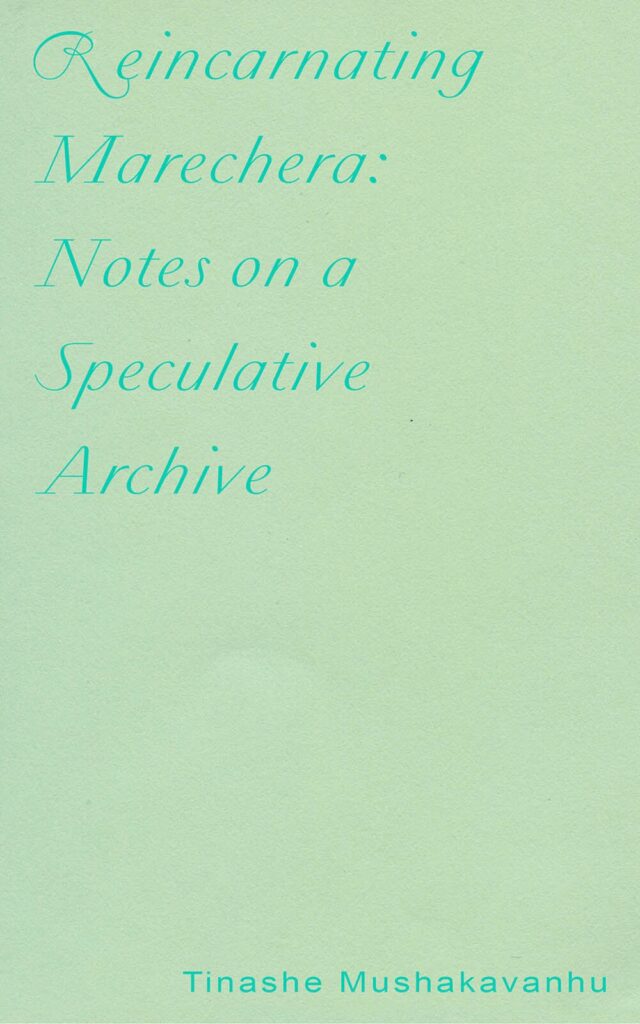President Robert Mugabe, Ministers Enoch Skala, Maurice Nyagumbo and Emmerson Mnangagwa consoling Dambudzo Marechera at the site of the bomb blast that killed his sister Tsitsi in May 1987 at Earl’s Court, Harare. (Image: Parade Magazine)
“The intense, slightly aggressive young man made an immediate impression. But the intensity was real. And the writing talent which was being applauded was real. And the aggression or anger was real, was deeply felt, and was in part pain and resentment against acts of arrogance, racism and cruelty, as well as deeper anger at the pervasive injustice displayed everywhere in the generality of society. And there was more, as comes through clearly in his work. There was a genuine desire and search for ways to communicate, to invent ways of saying and imagining that would shock others into awareness. It was his own deep caring that drove him to try to move others to the point of pain.” — Dennis Brutus’s preface in Emerging Perspectives on Dambudzo Marechera.
Marechera’s writing is a deeply unstable element: its argument proceeds through a sequence of quick, successive bursts and sudden aphoristic shocks. It is an unsettling, deliberate provocation. This is an important anarchic strategy Marechera employs, a critical model in which no set hierarchy exists.
His writings are amalgams of different genres, in which linear links are broken. The narratives cascade in no apparent order. Marechera’s vision was future-oriented, and part of his solution was straightforward. He lived free of consumerist attachments. There is wilfulness in exploring the possibilities of living life on the street, especially in the possibilities of producing writerly material.
Marechera stated that the purpose in his writing was to short-circuit the ways in which people think, to get them to see themselves in their full human potentiality when they looked at themselves in the mirror. Marechera is on the real revolutionary road. This kind of revolution, the one that the writer opted for, guarantees absolutely nothing, not even a bed or a roof over one’s head, except the reality of being true to oneself.
Living on the streets was the least of Marechera’s worries. He shared park benches with homeless former combatants who had no families to go back to and who had sacrificed the best part of their lives to the struggle, only to end up as beggars and crippled vagrants living on the streets, or unemployed youths foraging for work. He refused the strictures of family, marriage, employment, expectations, judgment and sobriety.
Despite this, he managed to have sporadic affairs with expatriate women. Stepping in and out of myth, in and out of literature, in and out of the fantastical and the everyday, Marechera redrafts the lines between fantasy and reality, following an obscure but robust logic whose precise architecture shifts with every gaze.
 Reincarnating Marechera: Notes on a Speculative Archive forms part of a long-running project covering various aspects of the writers’ life by scholar Tinashe Mushakavanhu. (Ugly Duckling Presse)
Reincarnating Marechera: Notes on a Speculative Archive forms part of a long-running project covering various aspects of the writers’ life by scholar Tinashe Mushakavanhu. (Ugly Duckling Presse)
His accounts investigate how to write the self outside of its normal habitus, in contact with new formations, with different experiences, and within a colonial linguistic program. Marechera spent his whole career trying to perform his double grasp of reality: seeing the language as well as the human relations it implies and employs. This double grasp encouraged him to use his writing as a way of stopping a fixed, simplistic understanding of human relationships.
When Marechera was 11, his father died. The memory of the death haunts Marechera and evokes lost childhood happiness, and occasionally seems to refer directly to his family’s crisis. They lose their home. His mother turns to sex work. The family disintegrates. There is a side to him, no doubt a consequence of this trauma, which is drawn to the allure of personas and the refuge of fictitious selves.
“The first time I saw a dead body, the first and last time, was when my father got killed, apparently in a road accident … The hospital authorities simply told mother, ‘We know it is your husband, but come and identify him,’ and she took me along with her. It was him all right. From the start I had been screaming at mother that I did not want to go, I didn’t want to see that person, and she kept saying, ‘but it is father’, and I was saying, ‘but he is dead’.” — An Articulate Anger: Dambudzo Marechera, 1952 -1987.
The public anxiety over Marechera’s writing was a mask for a deeper anxiety — an anxiety about Marechera’s dismantling of artistic conventions and etiquette; the realness of his vision, the brazenness of his brushstrokes. His vocation was for career failure; he was aware Zimbabwe would never accept the version of the writer he wanted to be.
Here is a man whose life and work were characterised by violent contradictions. These paradoxes, and the extraordinary conflicted feelings of admiration and dismay that Marechera’s story evokes, are at the centre of a powerful mystique that has seduced readers from China Mieville to Juliana Huxtable to Chimamanda Ngozi Adichie.
The manifestations of the phenomenon can also be identified in several commemorations or cultural events and productions inspired by or dedicated to the writer.
This is an edited excerpt from the third chapter of Reincarnating Marechera: Notes on a Speculative Archive (Ugly Duckling Presse)